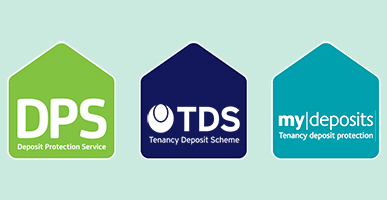
Ahh, the prickly issue of tenancy deposits.
Over the last decade tenancy deposits have become a highly contentious issue, for both landlords and tenants.
Based on the comments I have received on my blog, it’s safe to say that disputes over tenancy deposits is one of the single biggest reasons for a breakdown in the tenant and landlord relationship. Both parties seem to be pissed at one another and pointing blame.
I’ve already covered the issue in quite a bit of detail from my own perspective as a landlord, but now it’s time to betray my own kind by jumping ship to share my take on the matter from the perspective of a tenant.
Ideally, this article will help you determine what your landlord’s legal obligations are in regards to the handling of your deposit, and what to do in the event of a dispute.
While I’d love to help every tenant across all the vast lands, unfortunately the information I’m going to share will only be relevant to tenants in England or Wales. I literally don’t have a scooby about how tenancy deposits are meant to be handled anywhere else. Sorry, my powers are limited!
Page contents
- What should your landlord do with your deposit?
- Does my landlord have to protect my deposit?
- What if your landlord doesn’t secure your deposit or meet his obligations?
- Do I have to pay a deposit to my Landlord?
- How much deposit can your landlord take?
- Can my landlord keep my deposit?
- What can my landlord deduct from my deposit?
- When does my landlord have to return my deposit??
- My landlord won’t return my deposit or is making unfair deductions, what can I do?
What should your landlord do with your deposit?
First things first, let’s quickly go over what your landlord is legally obligated to do with your deposit once you have paid it:
- Securing the deposit – your landlord must secure your deposit into a ‘Tenancy Deposit Scheme’ with in 30 days of receiving it, even if you’ve only received a partial amount of the deposit.
There are currently 3 Government-backed tenancy deposit scheme, so your deposit should be secured in one of them:
- Serving “Prescribed Information” – once your landlord has secured your deposit, s/he then has 30 days to serve you with the ‘Prescribed Information’, which includes:
- Address of the rented property
- The amount taken for the deposit
- Which deposit scheme was used to protect the deposit
- The contact details of the tenancy deposit scheme used and its dispute resolution deposit
- The name and contact details of any third party that’s paid the deposit e.g. Letting Agent
- How to apply to get the deposit back
- What to do if there is a dispute over the deposit
Essentially, it’s written confirmation related to how and where your deposit has been secured, along with other useful information.
Each deposit scheme will have their own “Prescribed Information Tenant Pack”, which contains all the information you should be served with. So your landlord should serve you with the pack provided by the scheme they secured your deposit with.
Does my landlord have to protect my deposit?
If you have paid a deposit to your agent or letting agent, then yes!
What if your landlord doesn’t secure your deposit or meet his legal obligations?
Landlords failing to meet the tenancy deposit legal obligations has unfortunately become big business. I say unfortunately because some tenants have genuinely exploited decent landlords. Of course, there are many legitimate and deserving claims also.
Ok, so the deal is, if your lousy little landlord hasn’t met the requirements of the tenancy deposit legislation (as discussed above):
- Section 21 notice: your landlord will not be able to serve a valid Section 21 notice, so they won’t be able to evict you without having grounds for eviction (e.g. rent arrears).
- Financial Compensation: you can make a legal claim against your landlord and be awarded up to x3 of the deposit in compensation on top of your original deposit. To make a claim, you can either:
- Seek settlement directly with the landlord! No one wants to go through lawyers and legal proceedings, which is why I always encourage settling matters directly with the landlord. This, in my opinion, is always the best solution, even if it means settling for less than the maximum compensation you’re entitled to.
From my experience, only the most stubborn or affronted landlords end up in court because they refuse to settle. And most of them come to regret it when they realise the tenant isn’t bluffing.
- Use a solicitor.
- Make a direct application to the court for a deposit compensation claim by completing the form N208 from HM Courts and Tribunal Service.
- Use a specialist “No Win No Fee” deposit recovery service. Personally, I’m not a fan of these services for the usual reasons, mainly because I find them somewhat toxic and predatory. However, I understand their appeal. While I can’t endorse any specific service, I have seen a few of them being touted. Do your due diligence and pick your poison!
For free legal advice, you can contact Citizens Advice.
- Seek settlement directly with the landlord! No one wants to go through lawyers and legal proceedings, which is why I always encourage settling matters directly with the landlord. This, in my opinion, is always the best solution, even if it means settling for less than the maximum compensation you’re entitled to.
As landlord, I just want to make a friendly plea!
I briefly touched on the issue of exploitation, and I just want to dive into a little more detail (because I think it’s important).
If your landlord has been an overall good egg and has treated you fairly, but failed to comply with deposit legislation (for whatever reason), please carefully consider whether seeking compensation would be the right path to take. I’ve heard many stories of decent landlords, albeit negligent for not complying, being taken to the cleaners by money-grabbing tenants, and it seems rather unjust. Don’t be that type of person.
However, needless to say, if your landlord has been an unreasonable asshole, then good luck to you. Take him/her to the cleaners, by all means.
Do I have to pay a deposit to my Landlord?
If a deposit is required as part of the terms of the tenancy outlined by the landlord, then yes, you will need to pay one in order to qualify as a suitable tenant. A landlord is well with in their rights to refuse you as a tenant if you don’t want to pay the required deposit.
However, there is no legal requirement for landlords to take a deposit. It’s up to them. In fact, many landlords don’t take deposits anymore, simply because they can’t be bothered to comply with the legal obligations once one is taken.
How much deposit can your landlord take?
Generally speaking:
- Non pet-friendly landlords will demand anywhere between 4 – 6 weeks’ rent for a deposit.
- Pet-friendly landlords will demand anywhere between 6 – 8 weeks’ rent for a deposit.
From what I’m aware, the deposit amount must be “fair” and should not be excessive in relation to the rent.
The rules for tenancies in England that started on or after the 1st of June 2019 are more restricted! Since the introduction of the “Tenant Fees Act 2019” on the 1st June 2019, landlords in England (regardless of whether their tenants have pets or not) are capped at taking no more than five weeks’ rent for the tenancy deposit where the annual rent is less than £50,000.
Can my landlord keep my deposit?
It depends.
If your landlord has valid reasons to make deductions from your deposit, then yes, your landlord will be entitled to keep your deposit.
If your landlord is threatening to your keep your deposit and you don’t agree with his/her reason(s), you can dispute your landlord’s claim. More details below.
What can my landlord deduct from my deposit?
Here’s a list that covers some of the most common and reasonable reasons for landlords making deductions from your deposit:
- Rent arrears / unpaid rent;
- Damage to property (excluding Wear & Tear);
- Cleaning costs – the property should be returned to your landlord in the same condition as it was in when you moved in;
- Costs to replace missing or broken items;
- To rectify changes to the property that you did not receive written confirmation for.
When does my landlord have to return my deposit?
Your landlord must return your deposit within 10 days of you both agreeing how much you’ll get back.
If you’re in a dispute with your landlord over the deposit, then your deposit will be held and protected in the deposit scheme until the issue is resolved.
My landlord won’t return my deposit or is making unfair deductions, what can I do?
There are two reasonable possibilities in this instance:
- If your landlord hasn’t complied with the deposit regulations, then your landlord doesn’t have a leg to stand on – they won’t be able to make any deductions, and they should return the deposit in full.
If they refuse to return the full amount, you can seek compensation.
However, before you start any claims, you should send your landlord a formal letter, which should contain the following:
- a request for the deposit to be returned
- an outline of actions you have taken to try and resolve the dispute
- a notification that you will start court action if they do not respond or pay you back
You should also attach copies of any correspondence you have sent to your landlord and any other relevant evidence.
Here is a ‘letter before action‘ template provided by Shelter.
- If your landlord has complied with the deposit regulations, then you should follow the dispute guidelines provided in the prescribed information.
Typically, you will just need to open a case with the deposit scheme your deposit is protected with, and then they will assess your case and ultimately make the decision.
Handling deposit disputes fairly and objectively is exactly why Tenancy Deposit Schemes were introduced.
Disclaimer: I'm just a landlord blogger; I'm 100% not qualified to give legal or financial advice. I'm a doofus. Any information I share is my unqualified opinion, and should never be construed as professional legal or financial advice. You should definitely get advice from a qualified professional for any legal or financial matters. For more information, please read my full disclaimer.


 Landlord Products / Services
Landlord Products / Services


